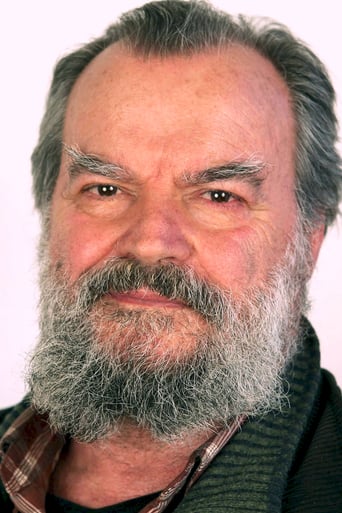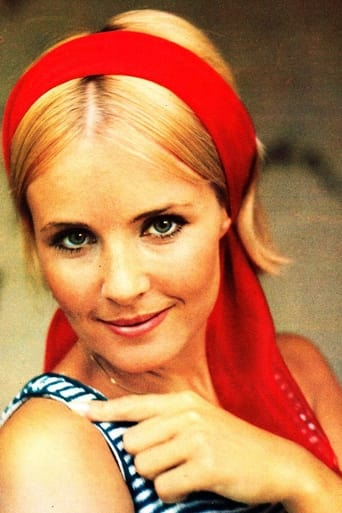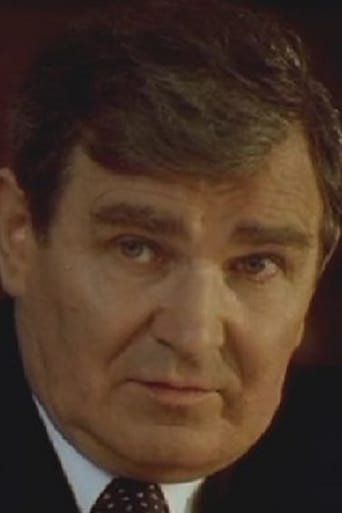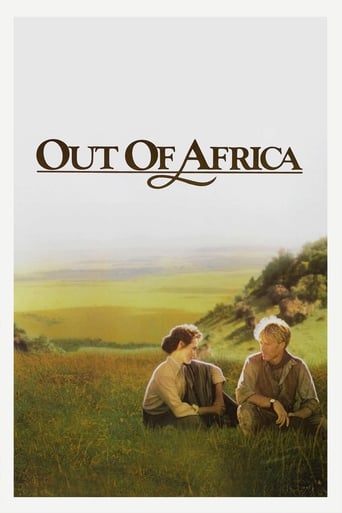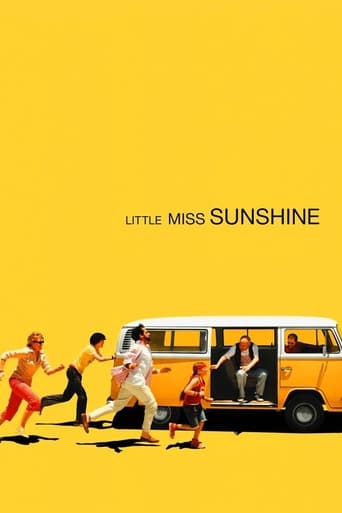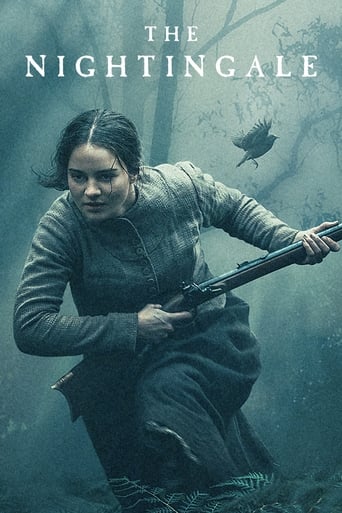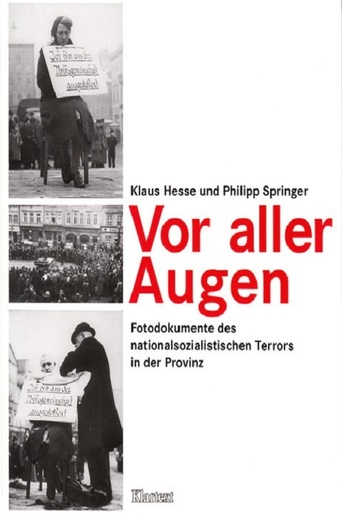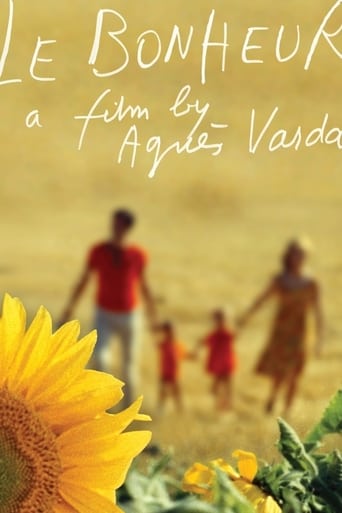
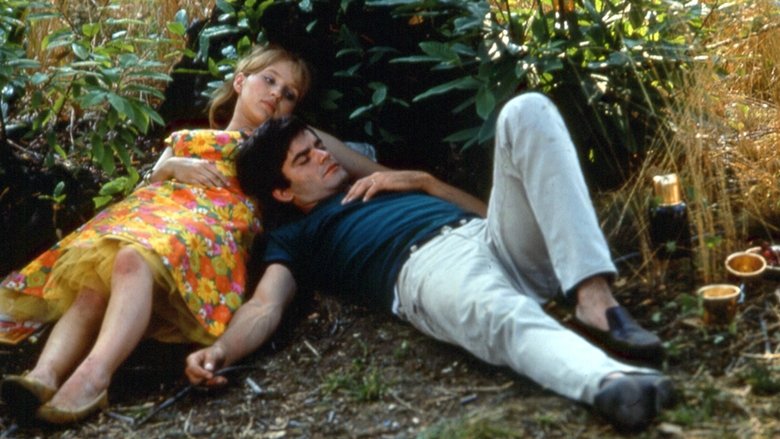
Happiness (1965)
A young husband and father, perfectly content with his life, falls in love with another woman.
Watch Trailer
Cast
Similar titles

Reviews
Good start, but then it gets ruined
True to its essence, the characters remain on the same line and manage to entertain the viewer, each highlighting their own distinctive qualities or touches.
True to its essence, the characters remain on the same line and manage to entertain the viewer, each highlighting their own distinctive qualities or touches.
One of the film's great tricks is that, for a time, you think it will go down a rabbit hole of unrealistic glorification.
I have admired the work of the magnificent Agnes Varda ("Cleo from 5 to 7," "Vagabond," "The Gleaners and I," etc.) for years, yet I had never seen "Le Bonheur" (aka 'Happiness,' 1965) until now. It's one of her masterpieces, a perverse 79-minute fairy tale in reverse that is deceptively simple and brilliantly subversive.Varda's inquisitive camera follows a happily married, attractive young couple with two kids (played by Jean-Claude Drouot, his actual wife Claire Drouot, and their own children Olivier and Sandrine). Everyone is perfectly happy and joyful, until François (Jean-Claude) meets another pretty blonde, Emilie (played by Marie-France Boyer), and decides that he loves her too. His wife Therese (Claire) is oblivious of the secret love affair, but it isn't long until François confesses to her that he's also in love with someone else. He hasn't fallen out of love with Therese; he has simply come to the conclusion that happiness works by addition, not subtraction. What happens next is what Varda explains as "taking apart the clichés" - and does she succeed at that!I went into "Le Bonheur" expecting a clever, non-judgmental, very French take on polygamy and societal perceptions about love and happiness. What I got was a visually stunning (Varda's work on the color schemes and the cinematography by Claude Beausoleil and Jean Rabier are a feast for the eyes), morally ambiguous, and subtly perverse film that gets under your skin. In "Vagabond," which Varda directed twenty years after "Le Bonheur," one character says to the protagonist, Mona Bergeron (Sandrine Bonnaire): "You chose total freedom and you got total loneliness." François has his own idea of total freedom; a possessive, egotistical kind masquerading as loving and compassionate. Somehow, he defeats loneliness by choosing happiness over grief. The road to his happiness is another discussion altogether, and it's up for the viewer to decide whether or not there's any integrity behind his actions.There's no doubt for me that Varda was a true visionary, and I'm so glad that, at 87, she's still working and sharing her brilliance with us. "Le Bonheur," in its apparent simplicity, is more complex and multi-layered than 90% of the films released in our day and age. 50 years after its initial release, it hasn't lost its panache, and still inspires new acolytes, like myself. The Criterion DVD edition, released a few years ago, has some great bonus features, such as recent interviews with Varda and the cast (including the Drouots, still married after 5 decades and claiming that the film helped their relationship!). 10/10.
A thing non-French users may not know:at the time,the male star,Jean-Claude Drouot was the brats' hero,Thierry la Fronde ,a miniseries where he portrayed a young French noble fighting against the "villains" (eg: the English) during the Hundred Years war.Casting the whole Drouot family (husband,wife,and children who all keep their first names in real life) was a risqué move for the sixties;And involving daddy in adultery was not particularly what they call "playing safe" ;and proving that the pursuit of happiness is legitimate and normal,even if they 've got someone's blood on their hands,it takes the biscuit..Pastel colors and the delightful cinematography display Varda's husband,Jacques Demy 's influence;the first part shows everyday life in a way both realistic and poetic.But ,sincerely,frank,I would not have expected that from feminist Varda.
A man in a happy marriage with two kids begins an affair, sincerely feeling he has enough love for both women and that neither one will be loved less. To start with, it's absolutely beautiful to look at. Varda always seems to know exactly what to do with the image, where to put the camera, which direction to move, when to cut, what color to fade to; everything is absolutely perfect.Moreover, the film is completely fascinating first because Varda deals with her subject with a rare honesty and forgiveness. Not a single character is unlikeable. Even if you see error in the husband's thinking, it is clear he believes with all of his heart that he truly can love both of these women at once and you sympathize with his sincerity. The wife is easy to care for, a good mother and very devoted, and the mistress is not someone you feel compelled to hate, either. She's not out to break up this marriage and she seems to really need this love.And what makes the film endlessly interesting is in how ambiguous Varda is about her own feelings. She never leads you to pick a side, never encourages you to see one specific viewpoint or leave the film feeling a particular way about what happened. While the music (Mozart is used throughout most of the film) in the last 15 minutes would seem to suggest anger at the way things have turned out, you can also look at the early stages of the film and see the image of the idyllic family with pastoral music as too perfect a presentation, one that is not entirely believable. Varda even hints at this herself; after we've watched about five minutes of this family picnicking in the woods, she cuts almost immediately to nearly the same image in a TV advertisement, suggesting that a marriage that happy only exists in commercials to begin with.
**SPOILERS**You could tell that Agnes Varda had half of a great idea going into this film, but she never panned it out to its fullest extent. It begins interestingly enough, and progresses so for about half an hour or forty-five minutes. Then it plateaus and nothing very important comes of it. The story has a young married man, Francois, who is in a state of perfect happiness with his beautiful, down-to-earth wife and two beautiful young children (these four are played by an actual married couple, the Drouots, and their children). On the job, Francois begins to run into a postal clerk named Emilie. He's attracted to her and thinks to himself, "Hey, I'm happy, but if I can make myself happier still, is there any harm?" So he starts to date her without losing an iota of interest in his wife. SPOILERS. Eventually, he decides to tell his wife, and he does so guiltlessly. She seems to take it well, and the two make love in an idyllic, pastoral setting. After their lovemaking, Francois falls asleep. When he awakens, she has drowned herself (apparently). Several months later, Francois and Emilie marry and she becomes a mother to the two children, working her hardest at taking the role. As the film ends, we realize that she has incorporated herself into the family perfectly and everything is back to normal. They will live happily ever after, or at least I didn't see any real foreshadowing of future tragedies.Now, my first instinct is to take the film as being slightly ironic. Wouldn't you think a woman director would want to satirize this man and his rather selfish attitude? Perhaps Varda thinks that a lot of men feel that they should be able to, or at least could successfully love two women at once. There's never a hint that either Francois' wife or Emilie would ever take another lover themselves. They are both absurdly selfless. Emilie totally accepts her position as the paramour. The wife does at first, of course, but it was only a lie so she could punish him. Even more ironic and unfair is that Francois only barely suffers from her death. Even their children seem wonderfully happy next to the indirect and direct causes of their mother's death.However, I'm fairly sure that the audience isn't supposed to hate Francois. In reality, it seems to me that Varda was trying to challenge social conventions and that she herself is asking why a man can't be perfectly happy loving two women. If this is the case, and it did seem so to me, I feel that Varda is just being a bit facetious. Francois is not a very believable character. He spouts some very ridiculous philosophy about why he should follow his heart and love both women. The audience, in fact, often laughed at these thoughts, because they were, in truth, silly. Francois, at times, seems absolutely naïve. Perhaps this is more support for my first interpretation. But if that were true, the movie still doesn't work. To satirize a kind of person, it's best to have them even remotely believable, which Francois, as I have stated, is not.Even if this film does fail in its narrative, it is still well worth seeing. It is perhaps best known for being Varda's first film in color. I saw an absolutely beautiful print: this woman knows how to use the format. It's all so vibrant; the colors are not exaggerated, but they're composed in such a way that they stand out almost in three dimensions. And she uses these beautiful fades to green, red, blue, white, and so forth. 7/10.
